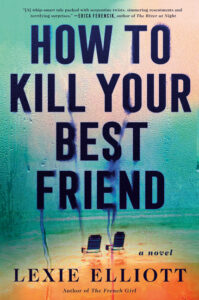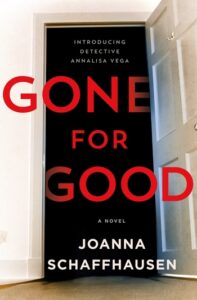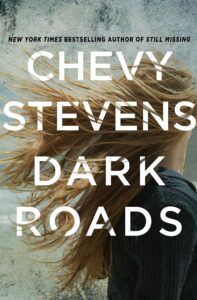Picture us, reader, taking a walk in the park. We have masks in our pockets and variants on the brain. If we had been on this walk two years ago and I said, “I worry that the world is going to face a sustained health crisis the likes of which had never been seen before.”
Reader, you would have muttered politely that I had a vivid imagination. I would have known you were trying to get me to stop talking about herd immunity and the worst-case scenario and how the hell is [your favorite unfortunate part of the world] going to make it?
I would have sighed and answered, “I know, I should lighten up. It’s August. Nothing happens in August. And the books are always good because it’s the runway to September.”
I would have been right about most of the above with the exception of the nothing happens in August sentiment. The best thrillers this August are pretty remarkable.

Louise Penny, The Madness of Crowds
(St Martins)
Let’s dwell a moment more in the scenario above. In thinking about how crime writers are going to chronicle this time, I’ve had many conversations about police, about access to health care, about the stratification of the worst hit populations and how COVID has so blatantly challenged countries with a social safety net and nearly decimated those without one. Wait, I thought this was about Louise Penny? the now confused reader is thinking. It absolutely is about Louise Penny, who in her seventeenth installment in the beloved Armand Gamache series, has tackled COVID and its consequences head-on. The book describes how everyday life in the tiny hamlet of Three Pines has changed while also exploring the threat of a statistician who is using the pandemic data as ammunition for a eugenics program. Plus one for the Canadians.
Robyn Harding, The Perfect Family
(Gallery Books)
Harding’s books occupy a very pleasant space between thriller and novel of manners—thriller of manners? Well-mannered thriller? Anyway, her latest takes another not perfect family and tells her story from alternating points-of-view. It’s an effective and engaging addition to Harding’s work which both anatomizes and destroys the wreckage of upper-middle-class life. Plus two for the Canadians.
Joanna Schaffhausen, Gone for Good
(Minotaur)
This is the debut novel in a new series for Schaffhausen, and it’s a promising and clever start. Her protagonist, Annalisa Vega, is tasked with solving the case of the Lovelorn Killer, a delightfully evil character who is very into bondage and I suspect has no safe word. Schaffhausen—one of the few psychology PhDs writing crime fiction—introduces insightful and gutsy Vega as a cop capable of catching Chicago’s worst serial killer, fueled in part by an unexpected personal motive.

Lexie Elliott, How to Kill Your Best Friend
(Berkley)
I liked Elliott’s first novel, The French Girl, in which a group of Oxford schoolmates who rented a house in France at the time one of their neighbors went missing. It had a haunted quality while still delineating different scenarios for what might have happened. This outing is also a group of old friends story—can we somehow shorthand that and say it’s a Big Chill story or a Return of the Secaucus Seven—there is again, a murder, and yet another group vacation is ruined by the specter of a violent crime.
Chevy Stevens, Dark Roads
(St Martins)
I’m having the hardest time remembering the title of this book and looking over Stevens’ bibliography I can see why: Dark Roads joins Still Missing, Never Knowing, and That Night, which might make Stevens the reigning queen of the ominous two-word title. Don’t make light of her: Stevens writes a mean thriller—great villains and unlikely heroes, all too human and caught up in all the violence and the verdant geography around Vancouver Island. Canadians plus three total if you are still keeping score: and if you are, you are probably Canadian.




















